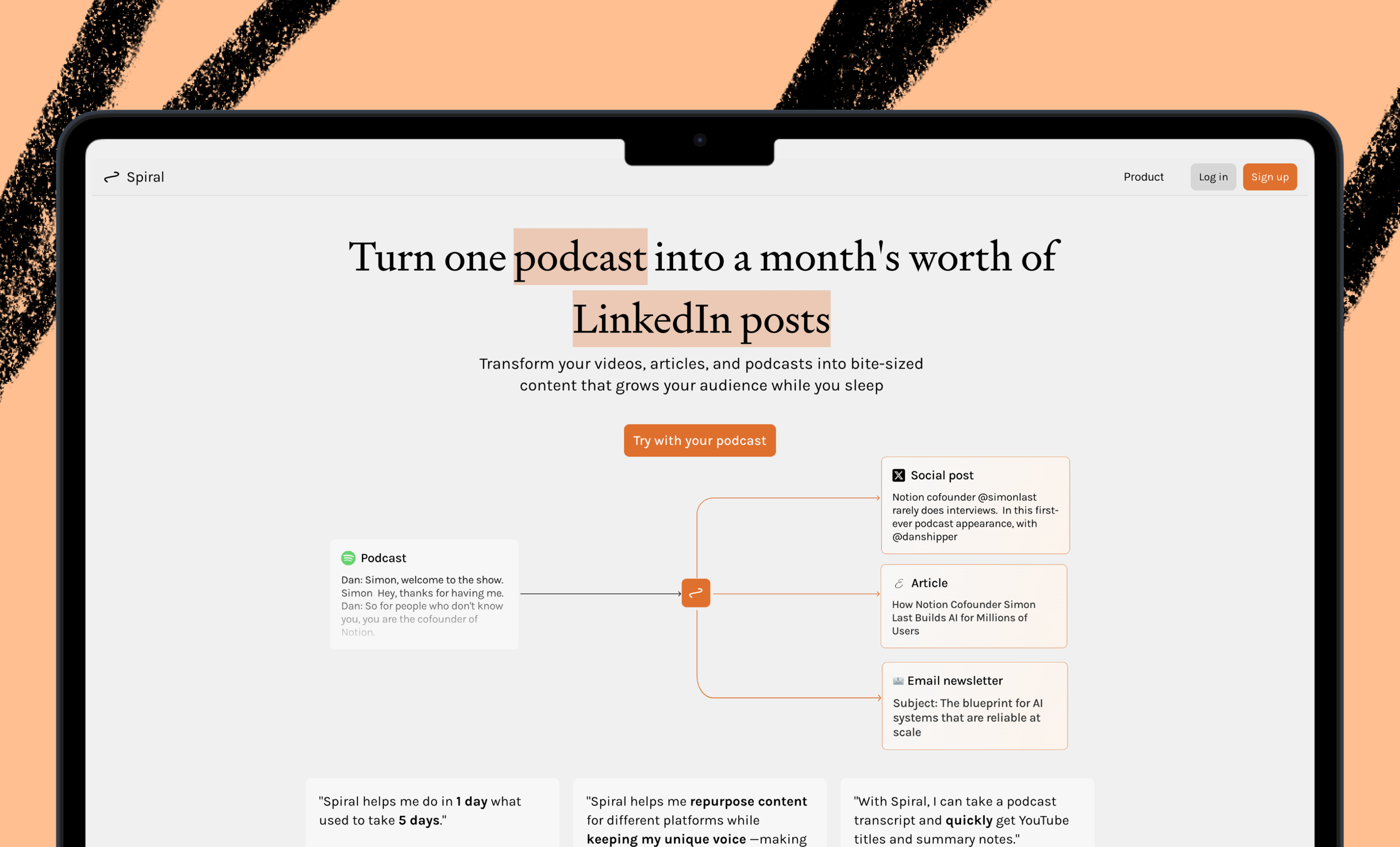
🔓 This is a free preview of a Premium Members only post! 🔓
Hey! This is something new — a space for short-form Divinations!
I’m calling it “three shorts,” because it’s just three short ideas. They’re all about strategy, but I employ a somewhat liberal interpretation of what that means. This preview consists of the first one, but there are two more shorts available for premium members here.
If people like this, I’d love to turn it into a recurring bit! I was surprised by how much I loved writing shorter stuff, and I imagine it might be a bit more consumable via email than my usual 2-3k word essays.
Enjoy :)
1
Why is Netflix more profitable than Spotify?
🔓 This is a free preview of a Premium Members only post! 🔓
Hey! This is something new — a space for short-form Divinations!
I’m calling it “three shorts,” because it’s just three short ideas. They’re all about strategy, but I employ a somewhat liberal interpretation of what that means. This preview consists of the first one, but there are two more shorts available for premium members here.
If people like this, I’d love to turn it into a recurring bit! I was surprised by how much I loved writing shorter stuff, and I imagine it might be a bit more consumable via email than my usual 2-3k word essays.
Enjoy :)
1
Why is Netflix more profitable than Spotify?
On the surface, it's because Netflix pays a fixed fee to its suppliers for content, while Spotify has to pay music labels a percentage of their total revenue. This means as Netflix grows their subscriber base, they grow their profit margins, but as Spotify grows they just have to keep paying the record labels more and more.
This fact is well known. But it made me wonder: why is Netflix's deal so much better than Spotify's is? What gave them the negotiating leverage?
This is also fairly well known. Netflix, when they first started, didn't have to cut any special deal with movie studios in order to exist. They could basically just buy DVDs and rent them to consumers over the internet. This gave them the ability to grow a user base and gain power before negotiating any special streaming deals. Spotify, on the other hand, had to cut deals before launching, which is a weak position!
But why wasn't there some Netflix-esque CD rental company? Why wasn't there a Blockbuster of music?
My first thought was that maybe CD rentals never took off, because music is the kind of thing people want to consume repeatedly, unlike movies, so it makes less sense to rent. But then I learned that there was actually a booming CD rental business in Japan throughout the 80's and 90's!
So why didn't CD rental take off in the US? Because, at least in part, of this testimony before Congress:
"Let us turn for a moment to consider a dramatic demonstration of the consequences of record rentals: the Japanese experience. More than 1,600 record rental shops have opened in Japan since their first appearance there 3 years ago. Surveys indicate that in areas where rental shops appear, record sales by retail record stores have declined by 30 percent."
This is a quote from a guy named Leonard Feist, who was president of the National Music Publishers Association. He said this while speaking to Congress in 1983 and advocating for a law banning the practice of music rentals. It worked! The law passed, and so no “blockbuster for music” was allowed to exist.
(CD rentals were never banned in Japan. Their powerful electronics industry — profiting from blank CDs, which people used to rip and burn their rented albums — squashed any complaints from the local record labels.)
Surprisingly, in the same hearing that banned CD rentals in America, movie studio execs were also present. They were there to lobby for another bill that would ban VHS rentals. But their bill failed. Unlike the music rental industry, which was tiny, VHS rentals were a huge business by 1983. It was too late to stop it.
But why did VHS rental take off so much faster than CD rentals?
Hey! Nathan here.
Given the intensity of the Covid-19 crisis the world is facing, it’s a safe bet that some of you are facing a hard time right now. I’d love to do anything I can to make this time easier. If you’re interested in a Divinations premium subscription, but can’t afford it for any reason, please let me know. I’d love to work something out.
Thanks so much for reading! Stay safe.
—Nathan
Ideas and Apps to
Thrive in the AI Age
The essential toolkit for those shaping the future
"This might be the best value you
can get from an AI subscription."
- Jay S.
Join 100,000+ leaders, builders, and innovators

Email address
Already have an account? Sign in
What is included in a subscription?
Daily insights from AI pioneers + early access to powerful AI tools
Ideas and Apps to
Thrive in the AI Age
The essential toolkit for those shaping the future
"This might be the best value you
can get from an AI subscription."
- Jay S.
Join 100,000+ leaders, builders, and innovators

Email address
Already have an account? Sign in
What is included in a subscription?
Daily insights from AI pioneers + early access to powerful AI tools







Comments
Don't have an account? Sign up!